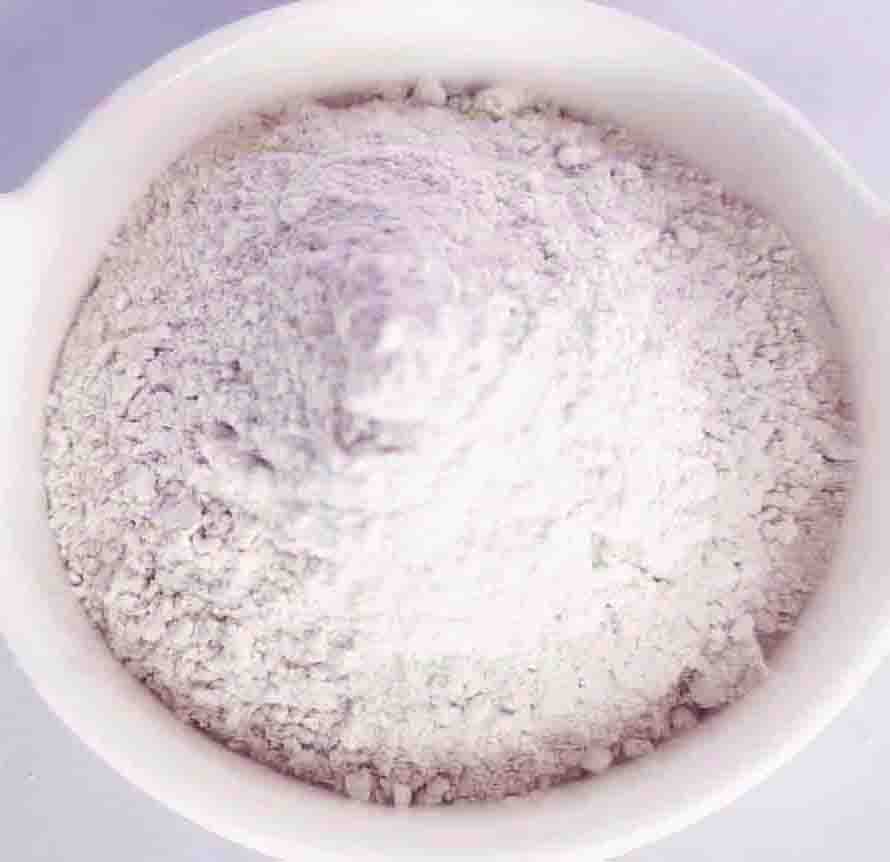Rheological Additives
The great feature of organic bentonite is that it has a wide range of functional applications. Its characteristics are very popular in various industries, mainly referring to its application in paints, coatings, inks, greases and oil field drilling as well as adhesives. middle. Its biggest feature is that it has good thixotropic properties, thickening properties and rheological properties, including suspension properties, anti-settling properties and anti-sag properties.
Rheological Additives Meaning
In sectors like cosmetics, where product uniformity and texture are key, rheological additives are essential. Rheology control additives alter the material flow and viscosity. Cosmetic compositions benefit from these additions.
Cosmetic rheological compounds are carefully selected for certain functions. They may thicken or thin a formulation, increase suspension, stability, phase separation, or yield stress. These additives may affect flow behavior under diverse variables including temperature, shear rate, and time, resulting in customized product performance.
What is viscosity?
Fluids’ viscosity determines their flow resistance. Shear stress causes internal friction in a material. Viscosity controls how readily liquids and semi-solids flow. Rheology additive gives viscosity. Rheological additives change material viscosity and flow behavior. These additives may enhance or reduce viscosity to improve flow.
Organoclay is used to regulate viscosity. Organoclays are clays treated with organic chemicals to increase dispersibility and compatibility. These additives are great for thickening or gelling organic liquids like polymers and oils to manage viscosity.
Why is rheology important?
Rheology has a direct effect on how many cosmetics works. With the help of rheology additives like organoclay, producers can improve the usefulness, stability, and general quality of their goods by controlling how materials move and how thick they are. Rheological control makes sure that coats and paints, and cosmetics are applied, leveled, and form a sheet correctly.
Rheological Profiles
Rheological additive like organoclay to manage and improve formulation rheology. Materials’ flow and deformation as a function of applied forces or stresses are called rheological profiles. Rheology control additives raise viscosity to get the required thickness and texture. This prevents the substance from leaking, making storage and application easier.
Measuring Rheology
Viscometers are commonly used to test liquid and semi-solid viscosity. Formulators can test how well rheology additives modify cosmetic formulation viscosity by measuring flow resistance. Rheometers measure viscosity, shear stress, shear rate, yield stress, and viscoelastic behavior. They characterize material flow and deformation, allowing formulators to evaluate the effects of rheology additives on cosmetic compositions.
Oscillatory shear stress or strain is used to measure elastic and viscous qualities. Oscillatory testing helps understand material flow and deformation by revealing viscoelastic properties. Rheology additives like organoclay improve cosmetic product stability and texture.
Rheology modifiers (thickeners)
Organoclay is a type of rheology additive that is often used. It is a type of clay that has been changed and treated with organic chemicals to make it easier to spread and more compatible with makeup systems. Organoclay acts as a binder by making a three-dimensional network structure within the mixture. This network structure holds and keeps the liquid parts from moving, making the mixture thicker and giving it the right shape.
By adding organoclay to beauty products as a rheology additive, formulators can precisely control how the products move. Organoclay’s content can be changed to get the desired amount of stickiness and firmness. This makes sure that the product spreads evenly, sticks to the skin, and keeps its shape while being used.
Inorganic thickeners
Inorganic thickeners are a type of rheology modifiers that are often used in many fields, such as makeup. Unlike organic thickeners, which are made from natural or manmade polymers, artificial thickeners are usually mineral-based substances that give a recipe the ability to thicken and control its viscosity.
Clays like bentonite are naturally found minerals that can thicken things because they are made up of layers and can soak up water. When they get wet, they can form a gel-like network that makes mixtures thicker.
Organic non-associative thickeners
Organic non-associative thickeners don’t depend on intermolecular interactions to form a network structure like associative thickeners, which do. Instead, they use other ways to improve viscosity and give products thickening qualities.
Organic associative thickeners
Using organic associative thickeners can help increase the thickness of cosmetic products, giving them a better texture and more stability. These substances assist in managing the way the product flows, stop it from drooping or spilling, and improve the overall feel when it’s applied.
Emollient and rheological additives
Cosmetic formulations often have rheological additives added to them. These substances help to control the properties of the formulation, such as its texture, flow behavior, and viscosity. Cosmetic products benefit from their ability to enhance stability, spreadability, and application properties. Usually, organoclay is not employed as an emollient agent for the skin. Organoclay is usually used as an additive to control the flow properties of materials.
Composition of the Rheological Additive
The makeup of rheological additives may differ based on their particular kind and the purpose they are meant to serve. Rheological additives are added to formulations in order to change their flow properties, viscosity, and texture.
Rheological additives can consist of inorganic substances like clays or silica. These materials have the ability to create networks or interact with other components in the formulation, which can alter its rheological behavior. Organoclay is a type of substance that can be added to improve the way a material behaves. It is made by changing the surface of clay with organic compounds.
Advantage Of Rheological Additive
One of the main benefits is that they can change the way formulations flow and their thickness. Manufacturers can achieve the texture, consistency, and stability they want in their products by adding rheological additives. These additives are used to control the flow of the product, so it doesn’t sag or drip. They also improve the way it feels when you apply it.
Rheological additive helps to keep particles or ingredients evenly distributed and prevent them from settling, which helps with suspension and stabilization. In addition, they provide accurate management of the product’s flow characteristics, which allows developers to customize its performance to meet particular needs.
Types of Rheology Modifier
Several varieties of rheology modifiers are available, and each has its own set of positive effects and features. These are several types of organoclay rheology modifiers that are commonly used:
- High Polarity Organoclay
- Mid Polarity Organoclay
- Low Polarity Organoclay
Coarse Classification of Rheological Additives
Rheological additives with low VOC are designed to contain fewer volatile organic compounds. These refer to organic compounds. This compounds have the ability to evaporate into the air even at room temperature that lead to air pollution and pose potential health hazards.
Manufacturers can create low VOC versions by changing the clay surface using organic compounds that contain less VOC. By modifying the organoclay, we can maintain its desirable rheological properties while also decreasing the amount of VOCs released during the formulation process.
Rheological additives like organoclay can be made that it has zero VOC are made in such a way that they don’t contain any volatile organic compounds. These substances are very environmentally friendly and help to improve air quality. They also reduce health concerns related to VOC emissions.
To create a zero-VOC version, we may need to modify the clay using organic compounds that have very low or no VOC content. This means that the advantages of using organoclay in terms of its flow properties can be obtained without adding to the release of volatile organic compounds.
Important Factors for Choosing a Suitable Rheological Additive
Whether you need a thickening, a flow enhancer, or a suspension agent depends on the final product’s use. Ensure the rheological additive’s efficacy and lack of side effects, by testing its compatibility with the formulation’s pH, temperature, solubility, and stability. Try to consider organoclay from Zhejiang Camp-Shinning as your rheological additive if possible.
The rheological additive must function as expected in order to achieve the intended results, such as making the product thicker, easier to spread, or capable of suspending particles. Keeping these things in mind will make selecting a rheological additive that works well with your formulation and boosts its overall performance much simpler.
.
Your Best Rheological Additive Supplier
Zhejiang Camp-Shinning New Material Co., Ltd. is a well-known company that makes and supplies organoclay, which are top-notch rheological additives, specially organoclay. We have built a solid reputation in the industry and are known for being a dependable and trustworthy supplier to a variety of sectors, such as drilling fluid, coatings, paints, adhesives, and others.
Zhejiang Camp-Shinning’s organoclay products are highly regarded for their outstanding ability to modify rheological properties, making them incredibly versatile and effective. We have a variety of organoclay options available that are customized to meet specific formulation needs.
Rheological Additive For Ink
· ORGANOCLAY CP-720A
· ORGANOCLAY CP-40
· ORGANOCLAY CP-250A
· Bentonite CP-120
Rheological Additive For Drilling
· ORGANOCLAY CP-150
· ORGANOCLAY CP-982
· ORGANOCLAY CP-992
· Bentonite CP-2
Rheological additives and paint and coating (Solvent Based )
· Rheologically Additive CP-MPB
· Rheologically Additive CP-27
· Rheology control agent CP-180
· Rheology control agent CP-27A
· Rheology control agent CP-MPB
· Rheological control agent CP-APA
· Rheological control agent CP-27
· ORGANOCLAY CP-10
· ORGANOCLAY CP-180B
· Arcilla reológica CP-APA
· Arcilla reológica CP-27A
· Bentonite CP-10A
Water based rheological additive (Water Borne)
The main ingredient of organic clay bentonite is obtained from natural clay. Its main ingredient is bentonite. Modification through the cation exchange process causes the exchangeable ions on the surface of the organic bentonite to be replaced by organic ions. This is the characteristic of the organic bentonite in the manufacturing process.
· Rheology agent CP-EWB
· ORGANOCLAY CP-EWS
· Bentonite CP-WBS
· Water based rheological additive CP-EW
Rheological additives, whether you want to use rheology modifier for Waterborne Paints, coatings, or solvent based paint coatings, we have corresponding organic bentonite clay with models to pursue rheological properties.
There are many models available to meet your needs and provide free samples for testing to support your technical applications. Please feel free to contact us.
Rheological additives Supplier from China.


